Paradise Parking Plots Community Garden

Paradise Parking Plots Community Garden began as a dream: a vision of a place where we can gather to grow foods reminiscent of home, meet others in the community and reconnect with the soil. Five years later, a neglected parking lot has transformed into vibrant urban agricultural land and is a leading example community-level green stormwater infrastructure.
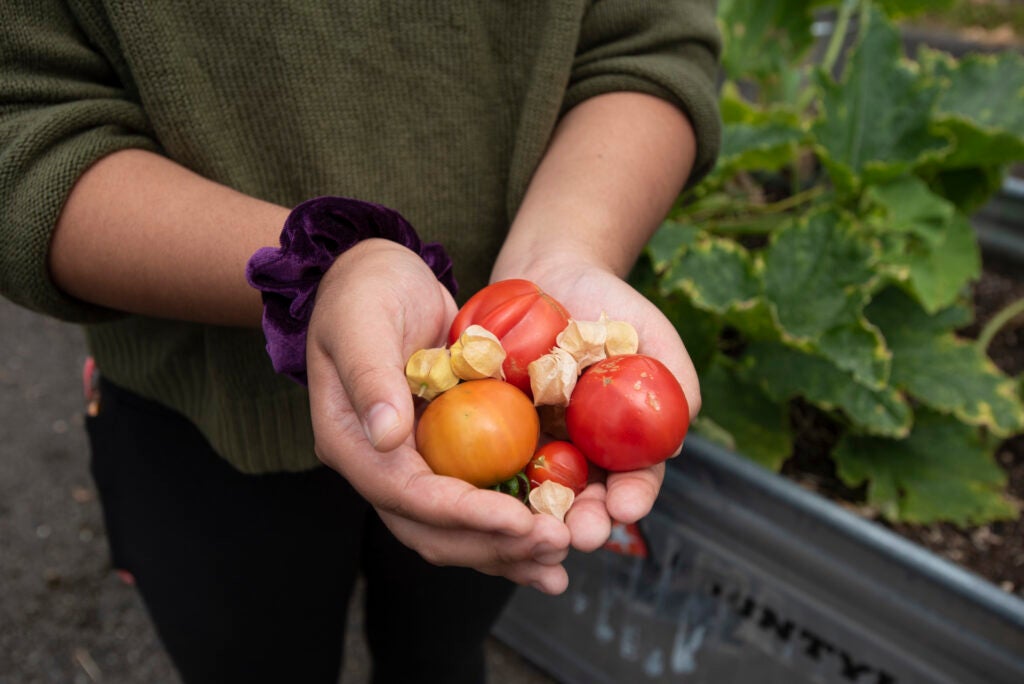
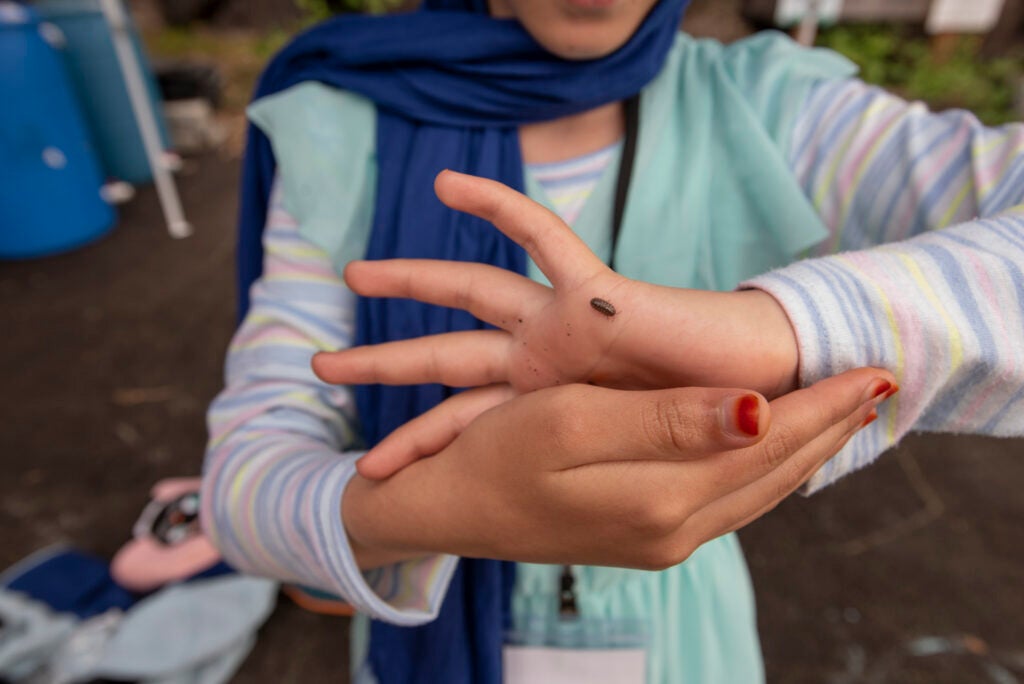
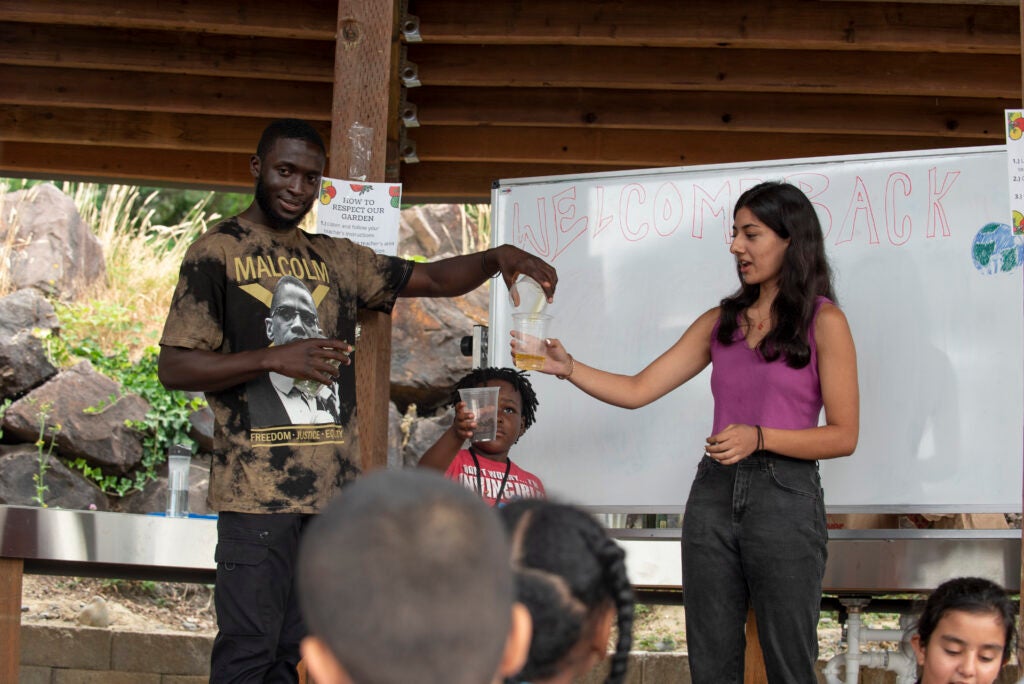
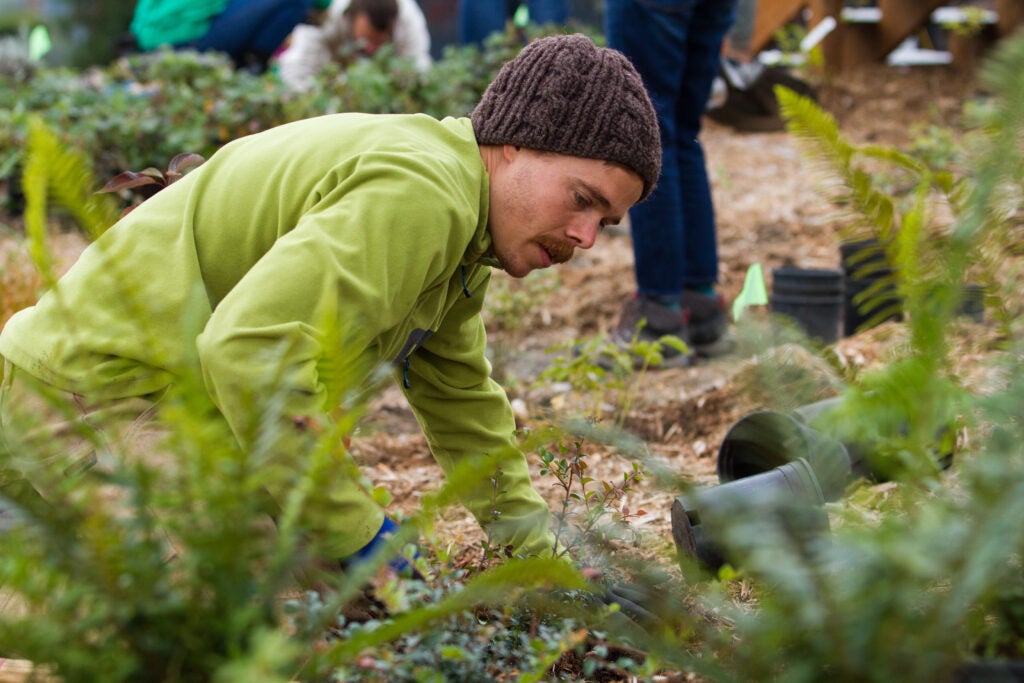
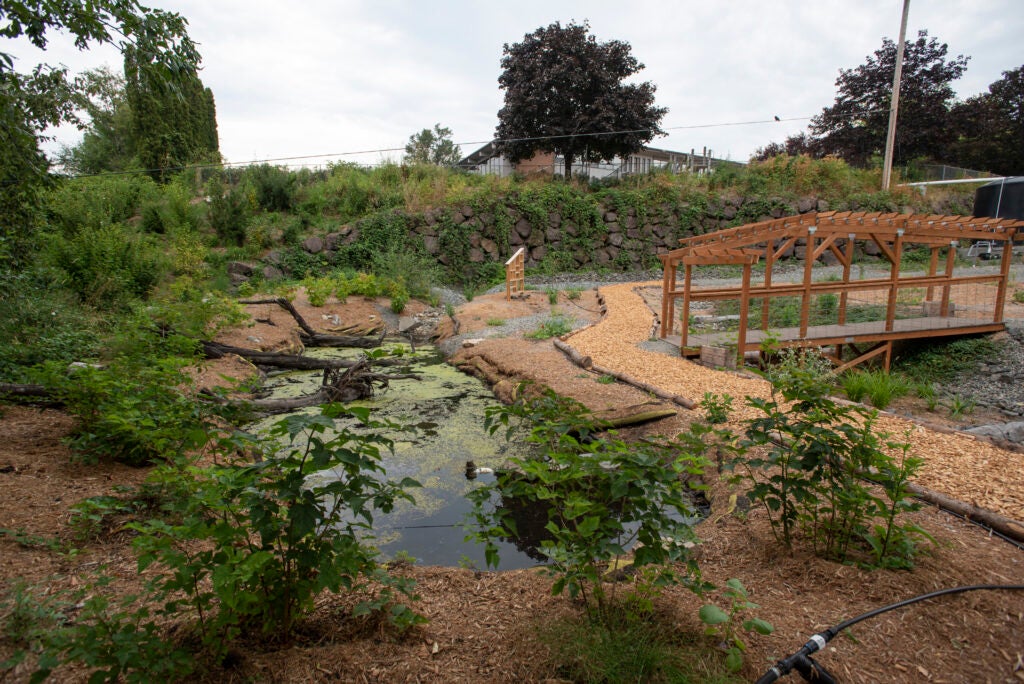
Together, We're Building Paradise
Created to assist newly arrived families to the United States, thousands of refugees have been welcomed to western Washington by the World Relief Western Washington (WRWW) organization.They provide vital services and community connection during those first crucial months when immigrant families arrive in the Pacific Northwest region.
Assisting newcomers to the U.S. with basic needs, such as housing and enrolling children in school, WRWW helps smooth the way as these families “begin a path to belonging.” Many immigrants are fleeing persecution in their countries due to race, religion or politics. World Relief picks them up from the airport, locates suitable dwellings, helps them with language barriers and provides all vital services for three months. After that, Lucas McClish steps in and provides support for long-term services.
Paradise Parking Plots
This project was started in 2017 by Tahmina Martelly, a refugee herself who originally came to the US fleeing war and persecution in Bangladesh. Her personal experience with the power of familiar food to transport one to a different time and place helped to motivate her in getting this project off the ground.
Located right off a major transit line, Hillside church in Kent WA donated an unused parking lot to World Relief Western Washington for a community garden. Converting this paved space was a massive effort of deconstruction and reconstruction, with 50 square feet of asphalt removed and replaced with locally produced compost and a nutritious soil byproduct from a local wastewater treatment facility. The garden now covers about an acre and a half, with some asphalt still existing for gardener parking and material deliveries. Plots are 11X17 feet (3.5 x 5.5 m.).
With 50 raised beds filled in, five rain gardens were installed and a bioswale with a paired food forest was planted. The garden captures 16,000 gallons of rainwater in four cisterns. Mr. McClish expects the four cisterns to be up to 21,000 gallons shortly and, with capital improvements, the garden will clean and divert over 1,000,000 gallons of stormwater each year.
Reconnecting with What's Familiar
The Paradise Plots garden provides a way to help refugees reconnect with the soil. This is a community of great diversity with families coming from Nepal, Kenya, Bhutan, Myanmar, Burma, Egypt, Mexico, Nigeria and Haiti. Many come from agrarian backgrounds and are accustomed to growing food as a normal part of their daily lives. Here they’re able to grow and share the foods they’re familiar with and in that sense, retain some remnants of their culture. Although many gardeners come with extensive agricultural backgrounds, Lucas McClish helps coordinate resources for refugees who may need training and guidance to adapt to growing in the unique climate of the Pacific Northwest. Classes are held at the garden around spring and summer planting times.
Sign up for the Gardening Know How newsletter today and receive a free copy of our e-book "How to Grow Delicious Tomatoes".
Learning
One aspect of Lucas’s role is to make the entire space productive and available to as many people as possible. Partnering with many other organizations and an advisory council of gardeners, he is constantly trying to create spaces for gardeners and community members to express their perspectives and needs.
A trellis-building class and compost tea course are just two of the recent classes offered. A five-week Refugee Youth Summer Academy is held for kids from a refugee background in grades K-8 where they learn to use the garden as a living laboratory. Interns from refugee and immigrant backgrounds also learn from the project and then offer the curriculum for the Summer Academy. They teach about sustainability, food access, mulching, fertilizing and general care of this organic space that is the pride of the neighborhood. Lucas says these families are “overjoyed” to be feeding their families fresh, organic food that can often be inaccessible due to pricing and local availability.
This project is a beautiful example of humanity at its finest. Sensitivity to the many daunting needs of families who are in vulnerable situations is a credit to the folks who have dedicated themselves to the World Relief program. Click here if you’d like to donate to Paradise Parking Plots.
Every year, Gardening Know How awards $1,000 to 20 different, hand-picked garden projects across the United States and Canada. If your community or school garden has a growing, unmet need for more soil, seeds, fertilizers, building materials, or even just help getting the word out about your program, we’re ready and willing to help you meet those needs. As community gardens and school gardening programs spring up all over, we’re happy to do our part to help. Click here to learn more about how to apply to the GKH Sponsorship.
Interested in learning more about school or community gardens? Visit our Community Gardening for Everyone page today.

Caroline Bloomfield is Manager of Marketing Communications at Gardening Know How since 2019. A northwest native, she has resided and gardened in multiple zones in the U.S. and is currently at home in Bandon, Oregon. Writing and editing for various publications since 1998, her BA in American Studies from Southern Maine University includes an emphasis in English. She was raised in California by avid gardeners and continues to enjoy the natural world with an appreciation for the concepts of sustainability and organic care for the planet.